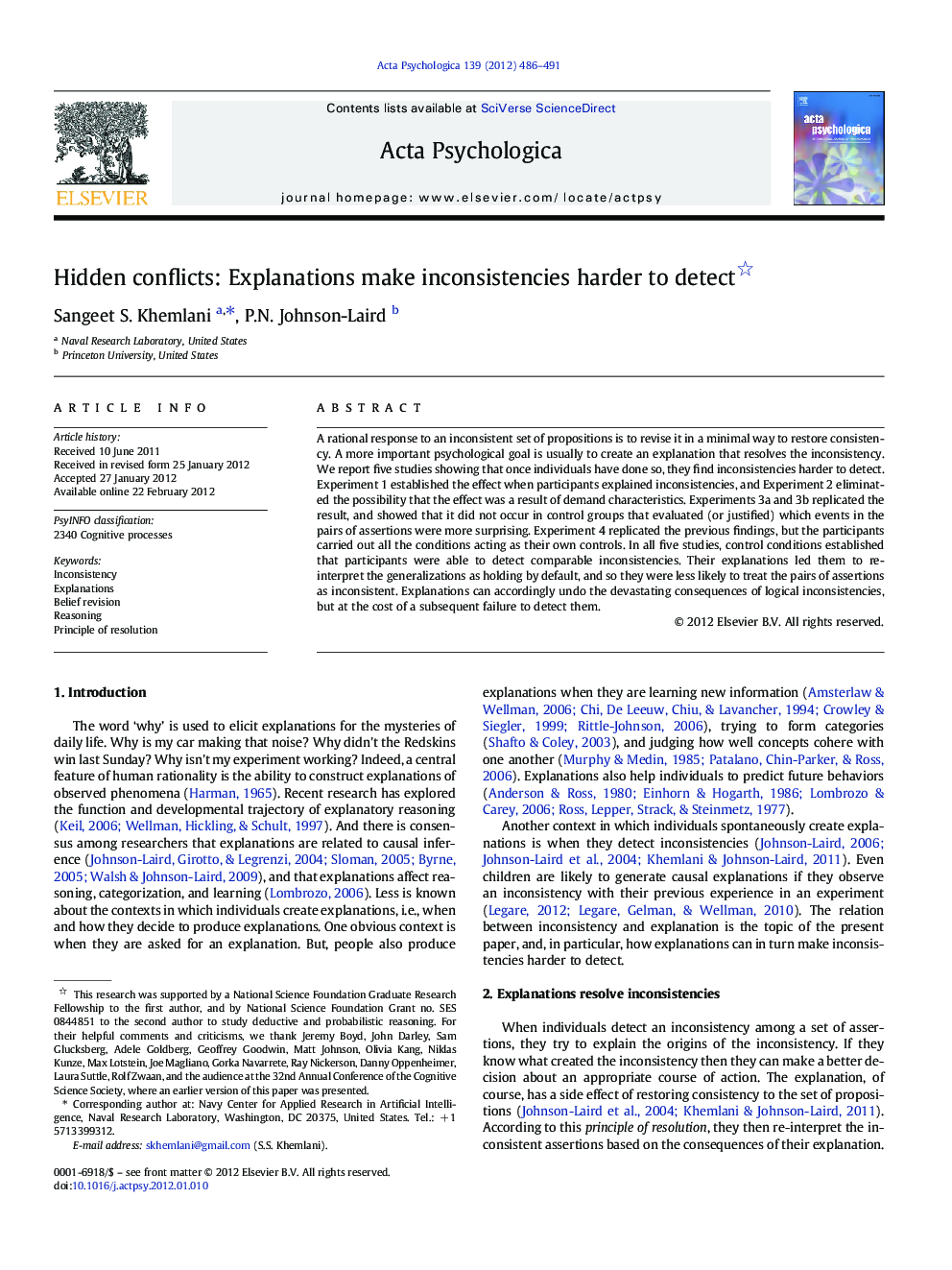| Article ID | Journal | Published Year | Pages | File Type |
|---|---|---|---|---|
| 920062 | Acta Psychologica | 2012 | 6 Pages |
A rational response to an inconsistent set of propositions is to revise it in a minimal way to restore consistency. A more important psychological goal is usually to create an explanation that resolves the inconsistency. We report five studies showing that once individuals have done so, they find inconsistencies harder to detect. Experiment 1 established the effect when participants explained inconsistencies, and Experiment 2 eliminated the possibility that the effect was a result of demand characteristics. Experiments 3a and 3b replicated the result, and showed that it did not occur in control groups that evaluated (or justified) which events in the pairs of assertions were more surprising. Experiment 4 replicated the previous findings, but the participants carried out all the conditions acting as their own controls. In all five studies, control conditions established that participants were able to detect comparable inconsistencies. Their explanations led them to re-interpret the generalizations as holding by default, and so they were less likely to treat the pairs of assertions as inconsistent. Explanations can accordingly undo the devastating consequences of logical inconsistencies, but at the cost of a subsequent failure to detect them.
